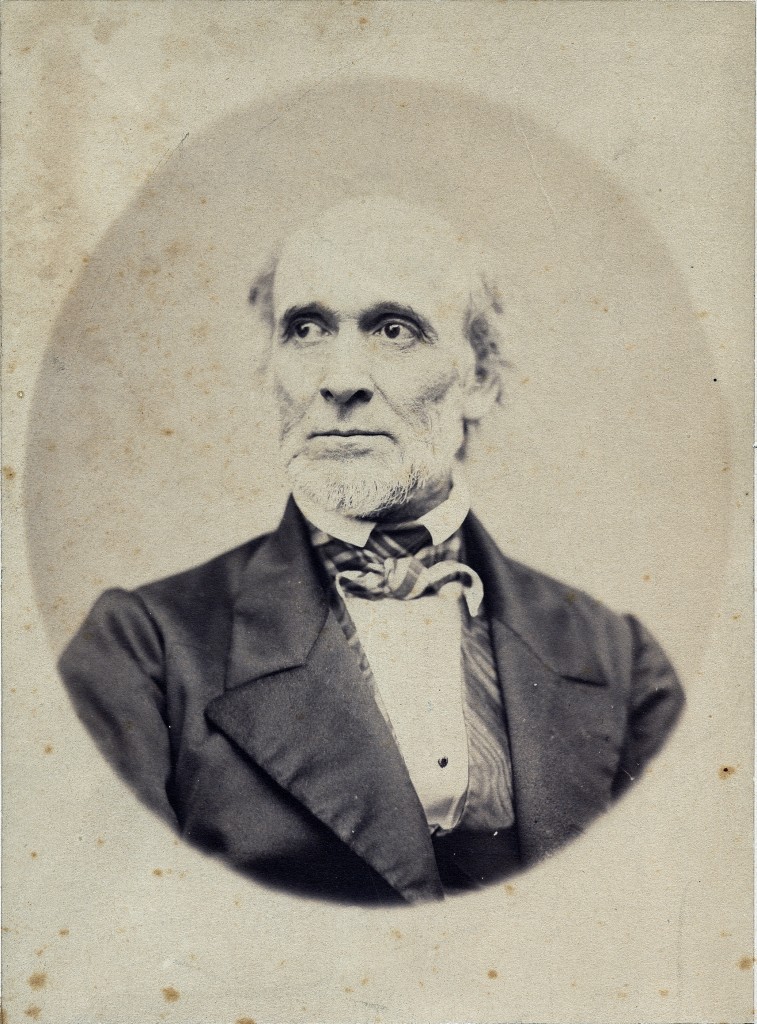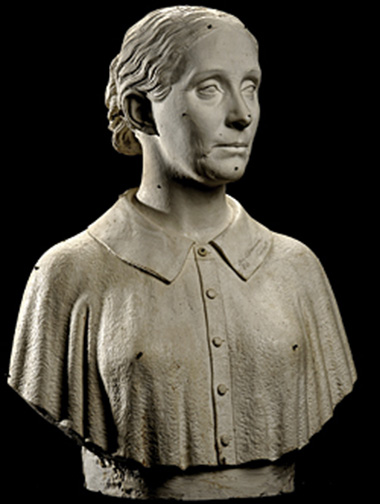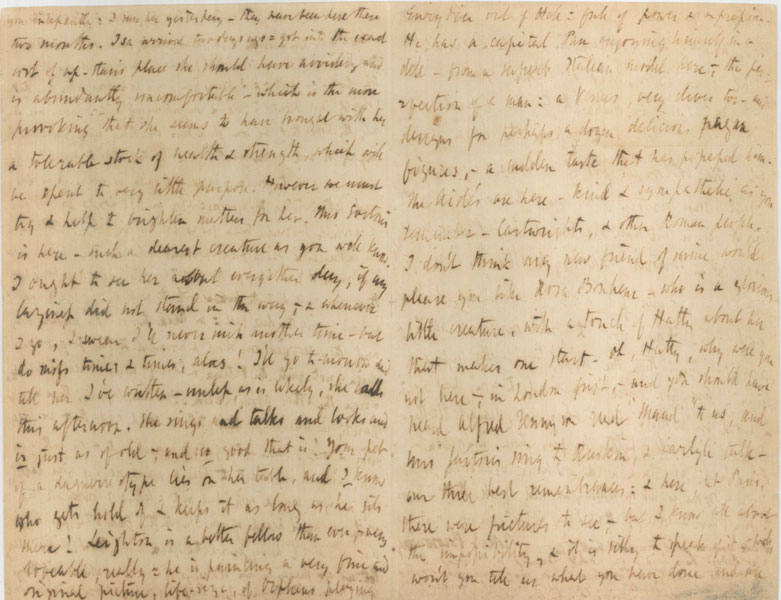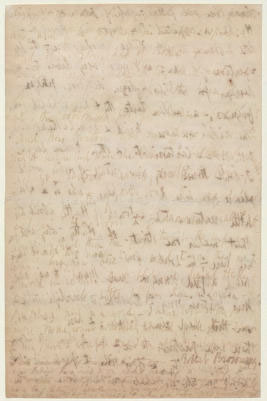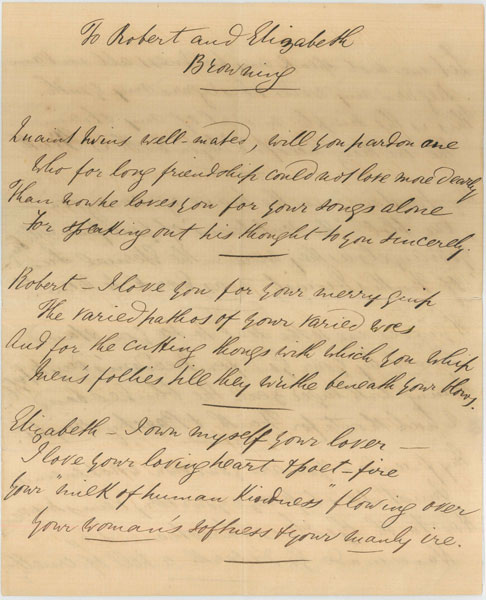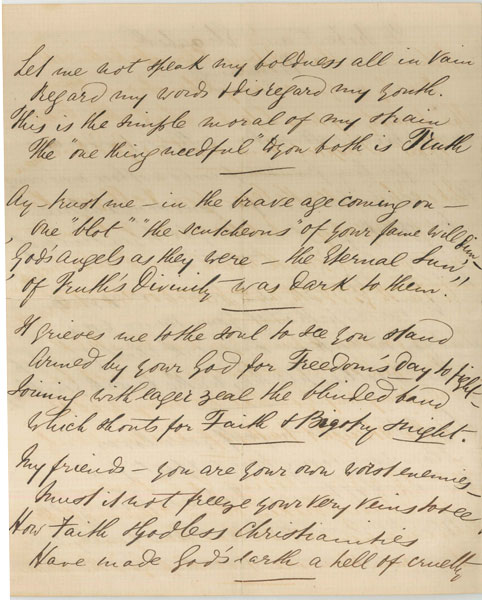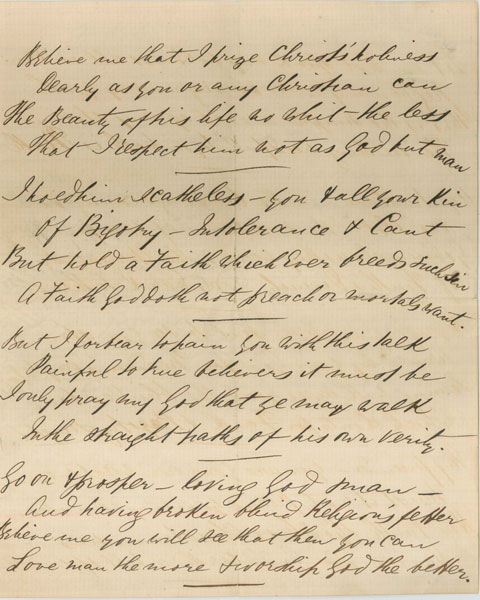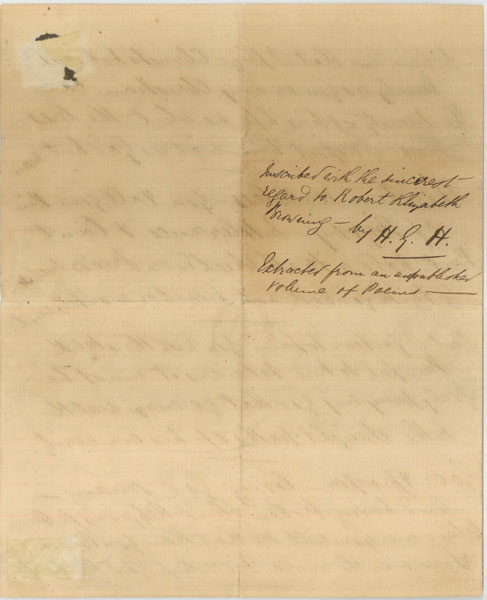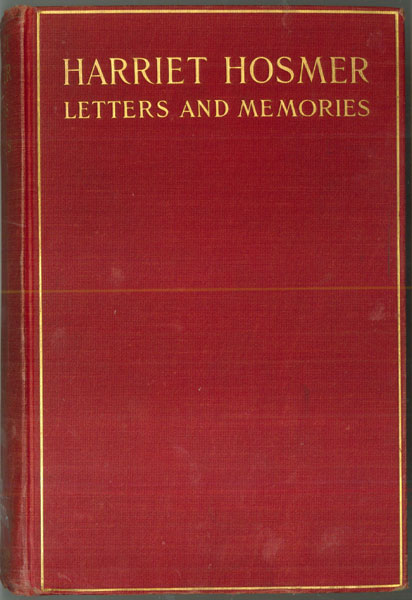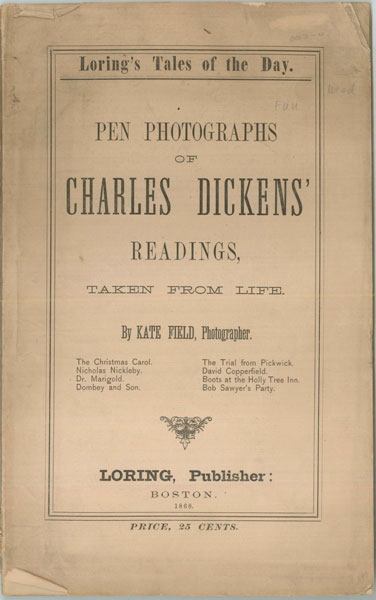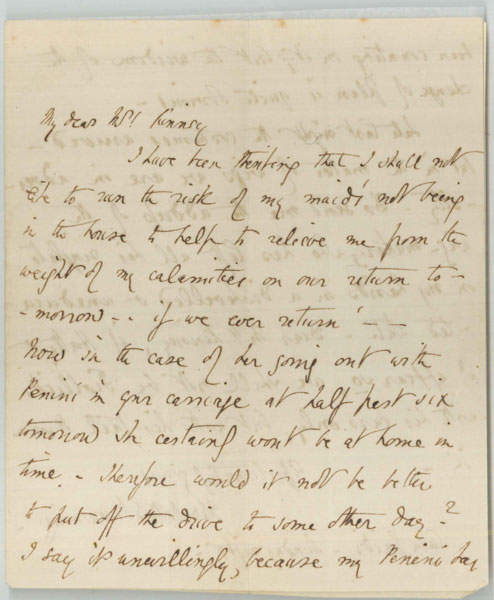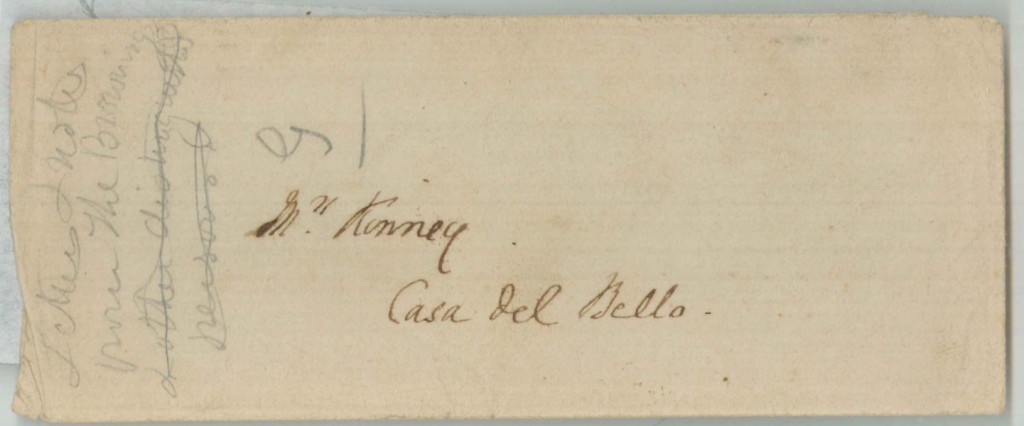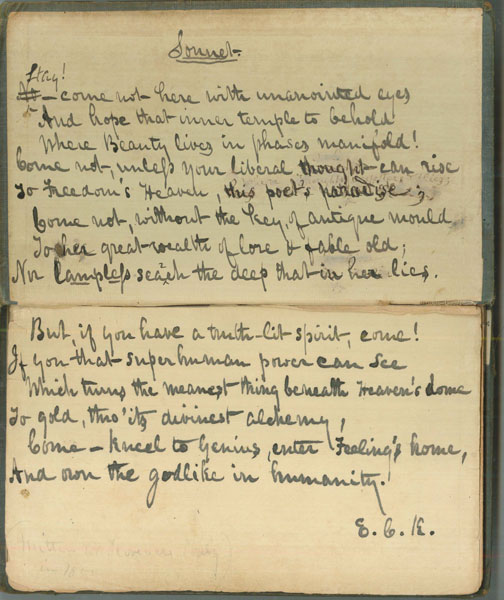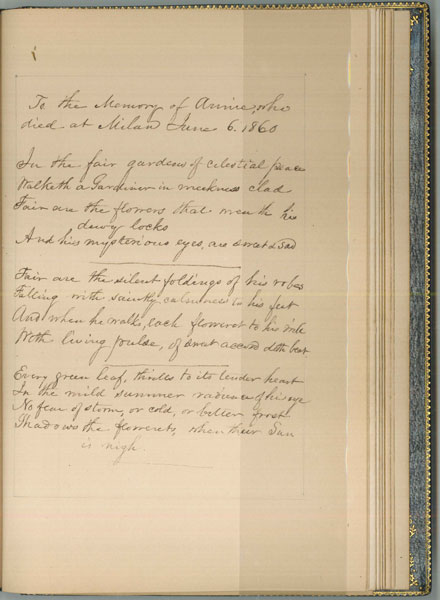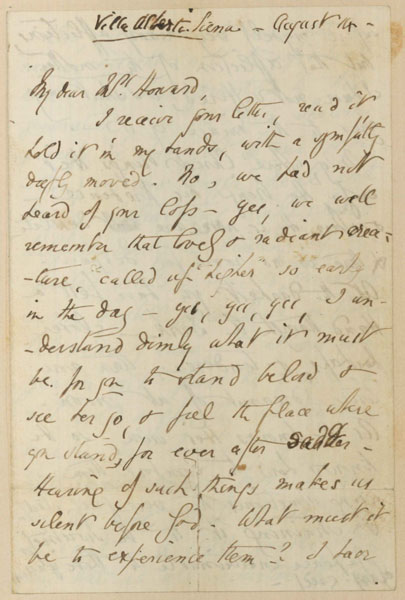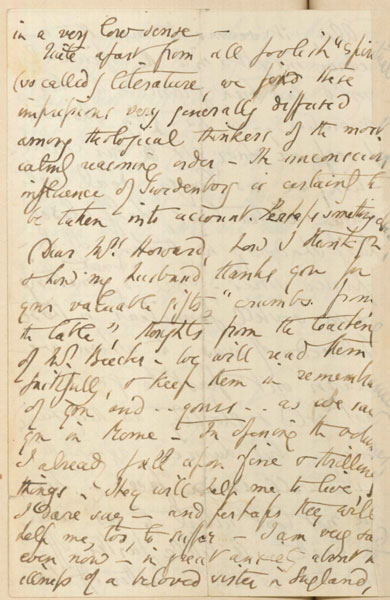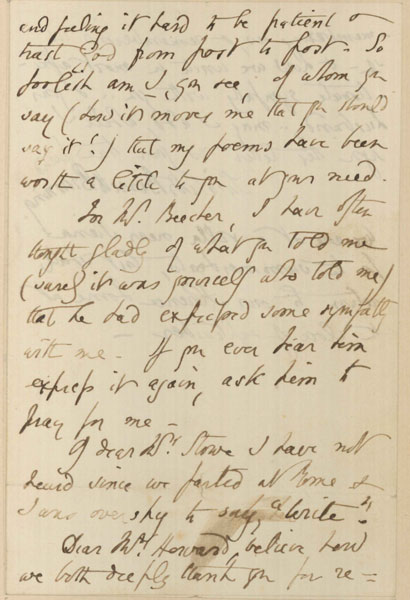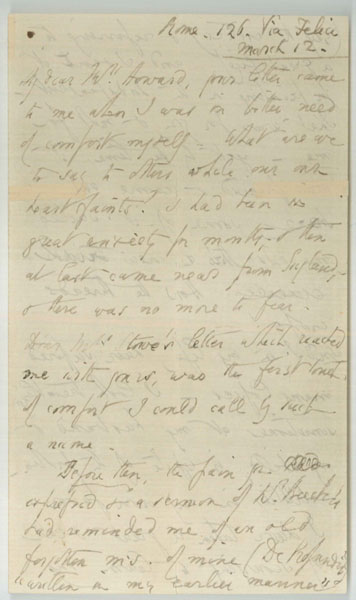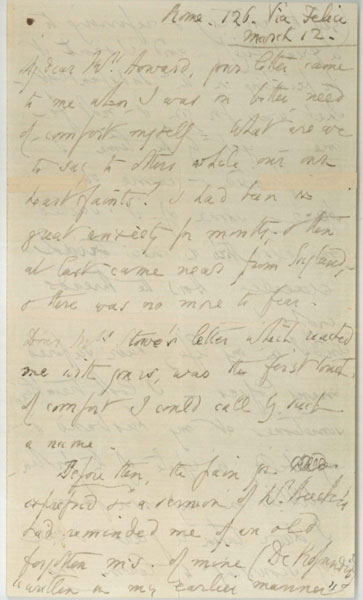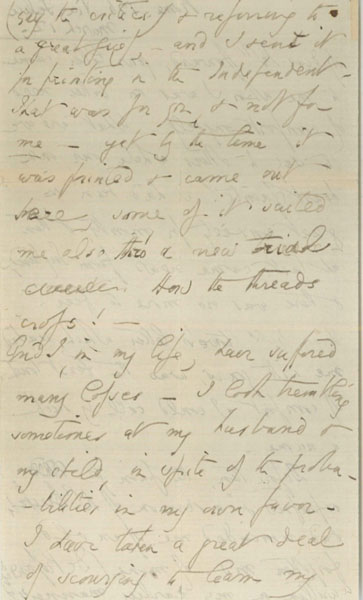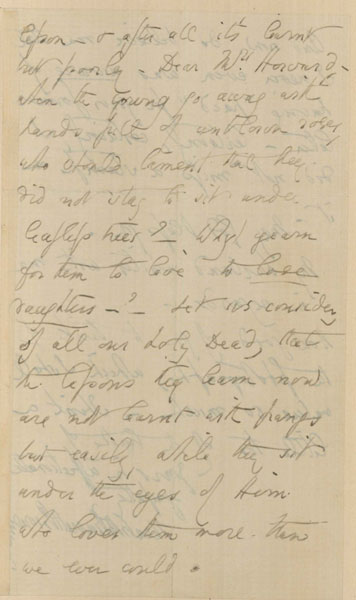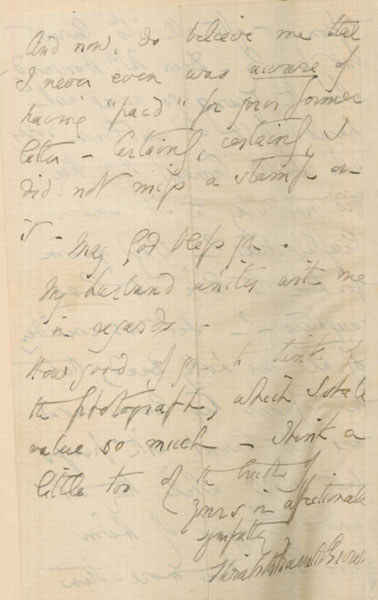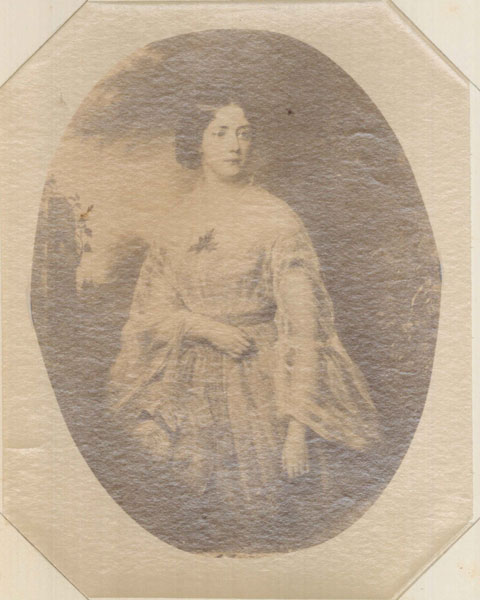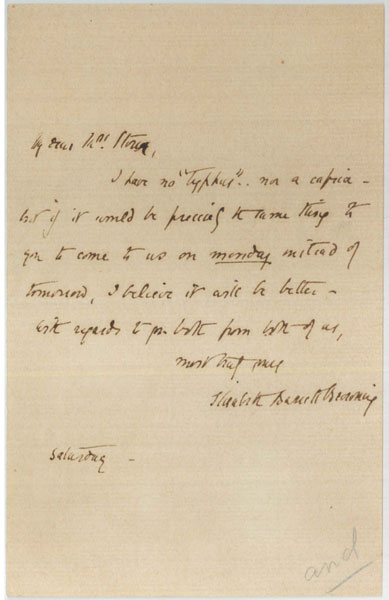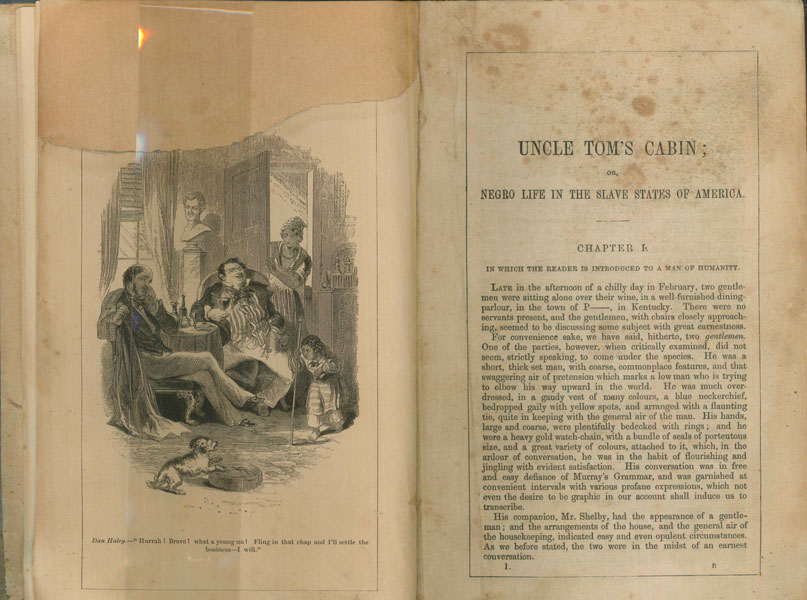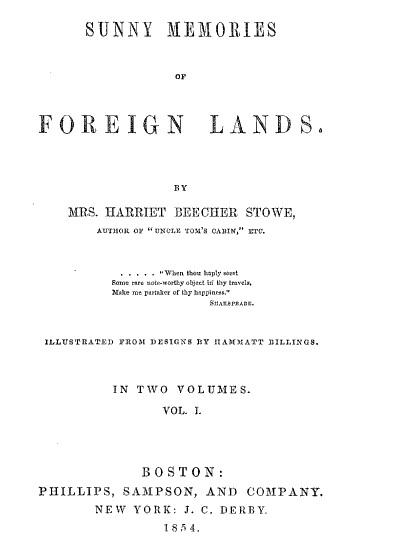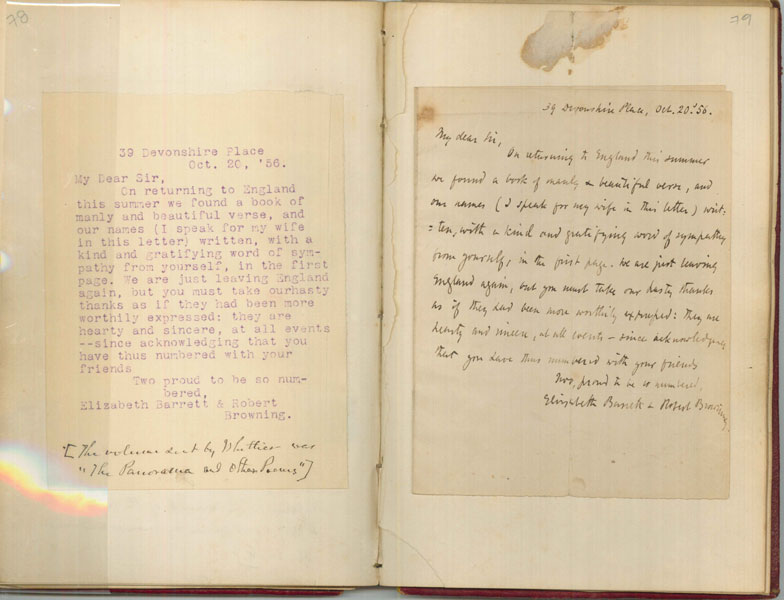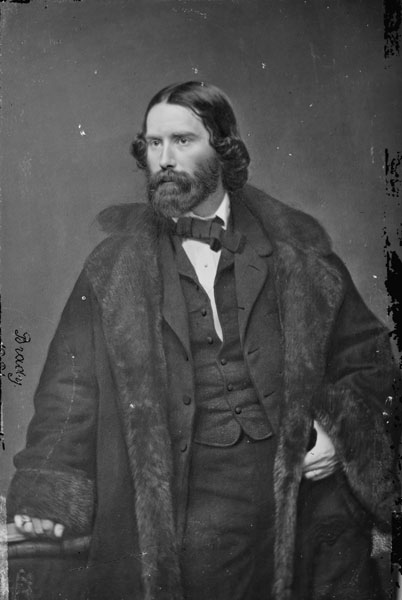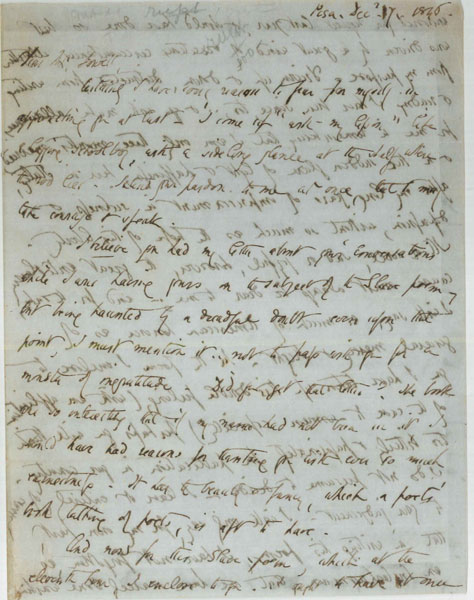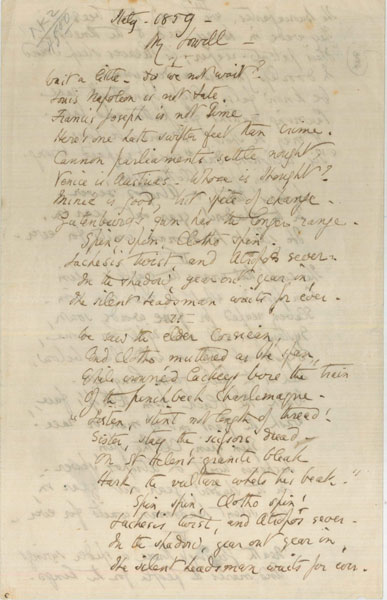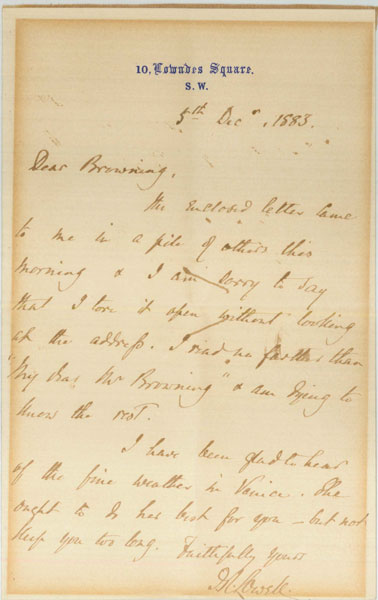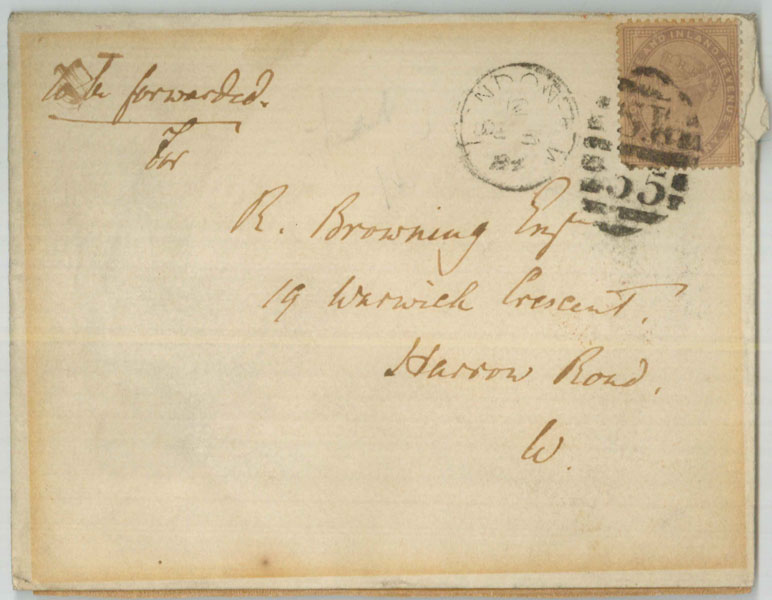 Katharine de Kay Bronson was a wealthy American who frequently traveled with her husband Arthur Bronson around Europe. In 1875, the couple and their daughter Edith (born 1861) decided to make Venice, Italy, their permanent home. Katharine Bronson entertained guests in her house, called Ca Alvisi, on the Grand Canal and became acquainted with a group of English-speaking artists and writers, among them Henry James and Robert Browning. Bronson was first introduced to Browning in 1880 probably by their mutual friend the American sculptor William Wetmore Story. Bronson and Browning developed a close friendship, and he and his sister Sarianna spent many holidays with Bronson in Venice and in Asolo. Browning’s Ferishtah’s Fancies, completed in 1884, is thought to be influenced in part by Bronson and Venice, and in 1889, Browning dedicated Asolando to Bronson. The dedication reads:
Katharine de Kay Bronson was a wealthy American who frequently traveled with her husband Arthur Bronson around Europe. In 1875, the couple and their daughter Edith (born 1861) decided to make Venice, Italy, their permanent home. Katharine Bronson entertained guests in her house, called Ca Alvisi, on the Grand Canal and became acquainted with a group of English-speaking artists and writers, among them Henry James and Robert Browning. Bronson was first introduced to Browning in 1880 probably by their mutual friend the American sculptor William Wetmore Story. Bronson and Browning developed a close friendship, and he and his sister Sarianna spent many holidays with Bronson in Venice and in Asolo. Browning’s Ferishtah’s Fancies, completed in 1884, is thought to be influenced in part by Bronson and Venice, and in 1889, Browning dedicated Asolando to Bronson. The dedication reads:
To whom but you, dear Friend, should I dedicate verses—some few written, all of them supervised, in the comfort of your presence, and with yet another experience of the gracious hospitality now bestowed on me since so many a year,—adding a charm even to my residences at Venice, and leaving me little regret for the surprise and delight at my visits to Asolo in bygone days?
Personal Letters from Robert Browning in the Collection of Katharine de Kay Bronson and Edith Rucelai Bronson.
This scrapbook was created by Katharine Bronson after Robert Browning’s death and contains photographs of Robert Browning as well as his letters to her.
Letter from Robert Browning to Katharine DeKay Bronson, 16 September 884
In a letter from Robert Browning to Mrs. Bronson, dated 16 September 1884, Robert Browning reminisces about the warm greeting he and his sister Sarianna received from Mrs. Bronson when they arrived in Italy for a holiday in 1883:
So it was last year, and the end of the journey was at the Venice Station when the first blessing was that of Luigi’s fat face—lighting the way a few footsteps farther to the more than Friend who had come in the rain to take us and keep us.
The Armstrong Browning Library’s holdings related to Katharine DeKay Bronson include one manuscript and eighty-seven letters.


